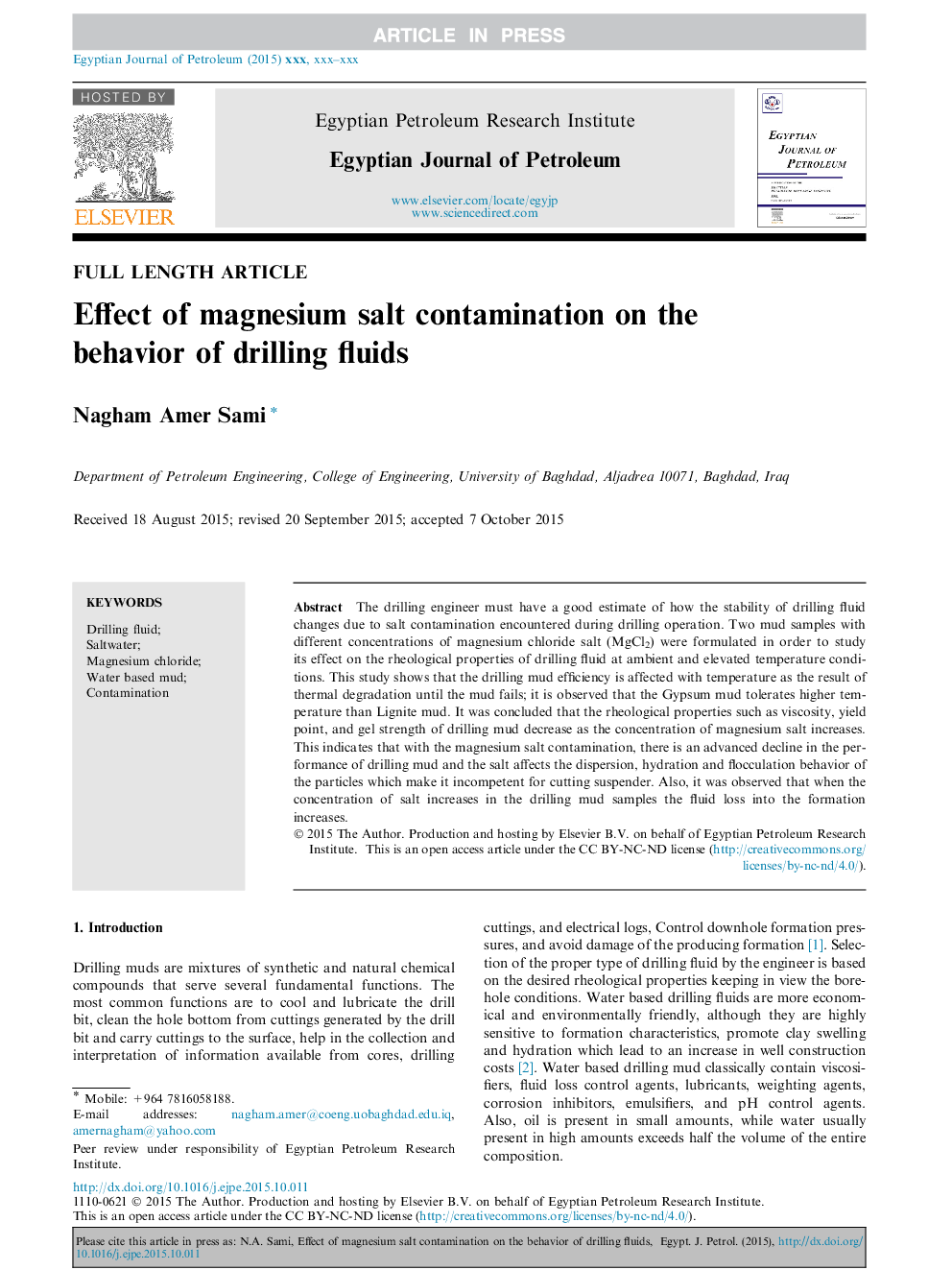| Article ID | Journal | Published Year | Pages | File Type |
|---|---|---|---|---|
| 5484670 | Egyptian Journal of Petroleum | 2016 | 6 Pages |
Abstract
The drilling engineer must have a good estimate of how the stability of drilling fluid changes due to salt contamination encountered during drilling operation. Two mud samples with different concentrations of magnesium chloride salt (MgCl2) were formulated in order to study its effect on the rheological properties of drilling fluid at ambient and elevated temperature conditions. This study shows that the drilling mud efficiency is affected with temperature as the result of thermal degradation until the mud fails; it is observed that the Gypsum mud tolerates higher temperature than Lignite mud. It was concluded that the rheological properties such as viscosity, yield point, and gel strength of drilling mud decrease as the concentration of magnesium salt increases. This indicates that with the magnesium salt contamination, there is an advanced decline in the performance of drilling mud and the salt affects the dispersion, hydration and flocculation behavior of the particles which make it incompetent for cutting suspender. Also, it was observed that when the concentration of salt increases in the drilling mud samples the fluid loss into the formation increases.
Related Topics
Physical Sciences and Engineering
Energy
Energy (General)
Authors
Nagham Amer Sami,
